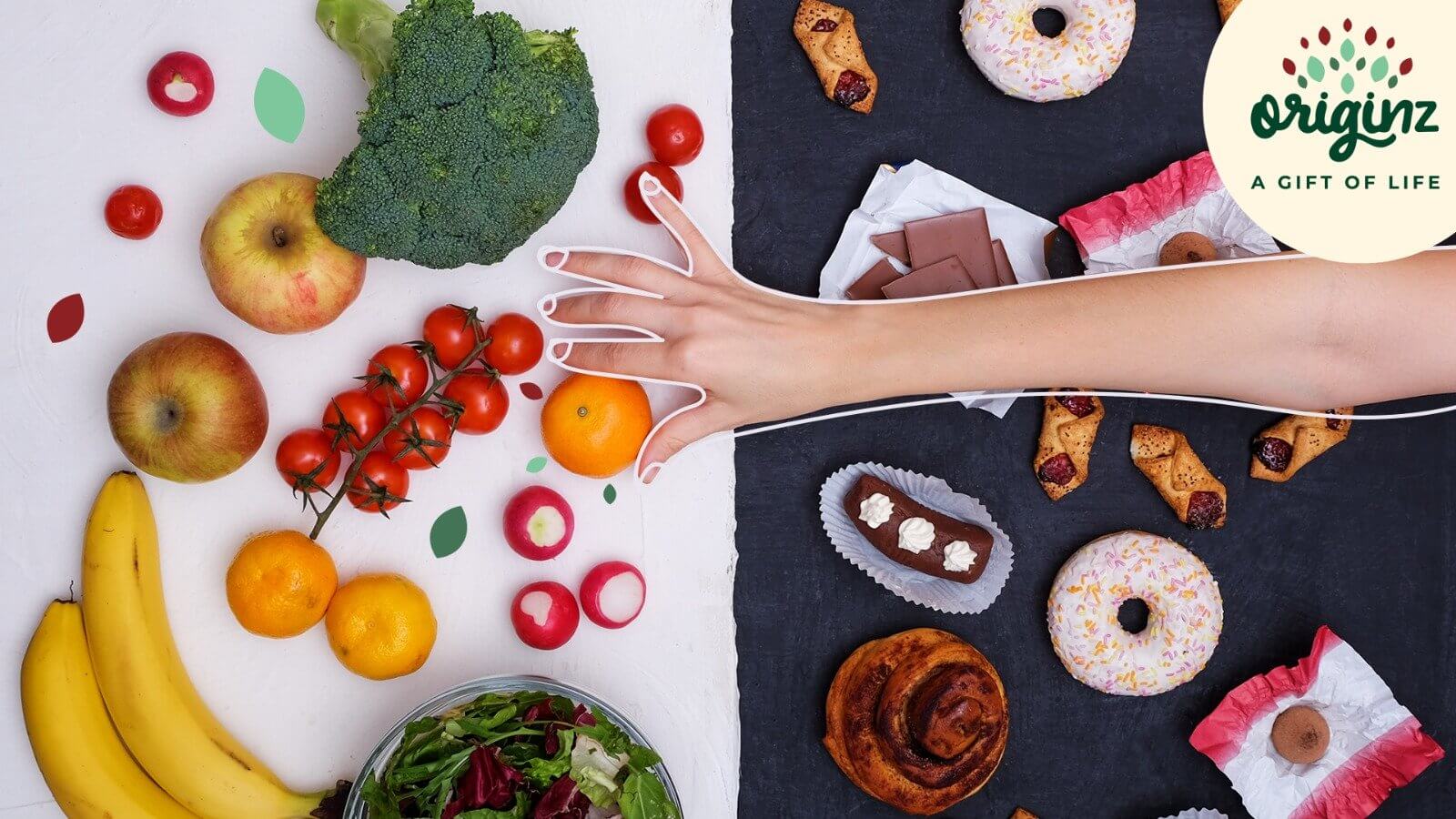
12 Differences Between Organic and Inorganic Food
Once upon a time, all food was organic.
The worldwide
population has increased tremendously (over 8 billion as of now), and
regions like the GCC—home to rapidly growing cities like Dubai, Riyadh, and Doha—have
seen a significant rise in food demand. Unsurprisingly, the need for
efficient food production has led to the discovery of modern farming methods,
including the cultivation of inorganic food.
But what’s all the hype about organic and inorganic food? What exactly sets them apart, and why is there such a growing preference for organic food in health-conscious communities across the UAE and Saudi Arabia? What is exactly the difference between organic food and non organic food?
Let’s break it
down.
Organic vs
Inorganic Food: The Main Differences
1. Source of Growth
Organic food is
grown naturally without synthetic fertilizers, chemicals, pesticides, or
hormones. Examples include:
- Eggs
- Meat
- Fruits
- Vegetables
- Milk
Inorganic food,
on the other hand, involves using chemical fertilizers, synthetic pesticides,
and growth hormones.
In countries
like Qatar and Oman, where consumers are increasingly aware of their food
sources, locally grown organic produce has gained popularity at farmers’
markets and premium stores.
2. Speed of Growth
Inorganic food
grows faster because of artificial fertilizers and growth hormones.
Organic food,
however, grows naturally at its own pace, requiring more time and care.
3. Use of Pesticides
Inorganic food
heavily relies on pesticides, which can leave toxic residues. Organic food
avoids synthetic pesticides altogether, relying on natural alternatives.
This is a key
consideration for families in the GCC, where maintaining health and avoiding
harmful chemicals has become a priority in meal planning.
4. Source of Fertilizers
- Organic food uses natural fertilizers
like manure and compost.
- Inorganic food relies on chemical
fertilizers, such as nitrates.
5. Health Factor
Be organic, be
healthy, be you.
Organic foods
contain more natural antioxidants, low levels of nitrates, and fewer pesticide
residues, making them healthier.
For instance,
in popular dishes like hummus or shakshuka, replacing processed oil with
organic olive oil adds significant health benefits.
6. Use of Hormones
Hormones are
often administered to cattle and poultry in inorganic food production to speed
up growth. This practice results in hormone-laden meat and chicken, which can
have severe adverse effects on health.
Organic food,
however, is free from hormonal inductions and is considered safer.
In GCC cities
like Abu Dhabi and Jeddah, many families prefer organic meat and dairy products
for their premium quality and health benefits.
7. Nutrient Composition
“To eat is a
necessity, but to eat intelligently is an art.”
Organic foods
have higher nutritional content, including more vitamins and minerals.
Additionally,
organic food is highly beneficial for individuals diagnosed with gluten
intolerance. For example, organic gluten-free multigrain spaghetti has
become a popular choice in GCC households.
8. Effect on Environment
Organic farming
practices promote environmental sustainability by:
- Using natural fertilizers and
pesticides.
- Supporting soil and water health.
- Increasing biodiversity and
maintaining natural ecosystems.
In contrast,
inorganic farming involves synthetic chemicals that can harm the environment.
Countries
like Saudi Arabia and the UAE are increasingly supporting sustainable
agricultural initiatives to meet growing demand while protecting natural
resources.
9. Shelf Life
Inorganic food
contains preservatives, allowing it to last longer on shelves. Organic food,
however, has a shorter shelf life—lasting only a few days without
preservatives.
10. Cost
Organic food is
more expensive because it requires more time, effort, and care to produce.
On average,
organic food costs 10–20% more, which is reflected in its premium
pricing across high-end grocery stores like those in Dubai Mall or Al-Maha
Markets in Riyadh.
11. GMO Presence
Organic food is
free from Genetically Modified Organisms (GMOs).
In countries
like the UAE and Kuwait, awareness of GMO-related health risks—such as allergic
reactions and antibiotic resistance—has led to a growing preference for
organic, GMO-free products.
For example,
organic tomato paste, free from GMOs, has become a sought-after ingredient for
health-conscious home cooks.
12. Demand for Consumption
At the beginning
of human history, all food was organic. However, as populations grew, the
demand for quicker, cheaper food led to the rise of inorganic produce.
Over the past
decade, demand for organic food has surged, particularly in cities like Dubai,
Doha, and Muscat, where consumers prioritize healthier lifestyles. Supermarkets now dedicate entire sections to organic products, and FMCG
brands proudly highlight their organic certifications.
Final Thoughts
The differences
between organic and inorganic food are clear: organic products offer superior
health benefits, environmental sustainability, and natural purity.
In the GCC,
where consumers are becoming increasingly mindful of their health and food quality,
the demand for organic produce has risen sharply. From organic eggs for
Emirati-style breakfasts to organic fruits for refreshing Ramadan smoothies,
organic options are becoming a part of daily life.
Knowing these
differences between organic and non organic food empowers you to make informed choices for yourself and your family.
So, the next time you shop in Riyadh, Dubai, or Doha, ask yourself:
Will you
choose organic or inorganic food? Your health and the environment will thank
you.
Further Read,
Latest Blogs

Maintaining Healthy Habits After Ramadan
Have Ramadan healthy meals after Ramadan and maintain healthy food habits and implement them in your daily lives. Read more about healthy food habits.

Authentic Middle Eastern Iftar Meals to Prepare This Ramadan
Prepare some authentic middle eastern iftar meals this Ramadan. Look for fresh Ramadan food ideas and make your day memorable with these dishes. Check them out.

Ramadan Dishes to Cure Fasting Fatigue
Don’t worry about fasting fatigue anymore as we have listed some best Ramadan dishes and easy iftar meals to support your fasting journey. Check them out.

Eid-al-Fitr Feast: Delicious Recipes to Celebrate the End of Ramadan
Celebrate the end of Ramadan with delicious recipes on the eve of Eid ul Fitr. Read more about the traditional Ramadan recipes and make them easily.